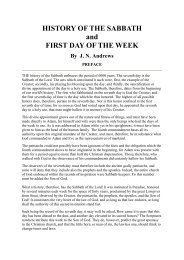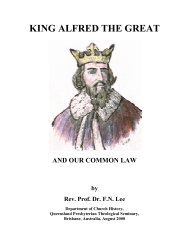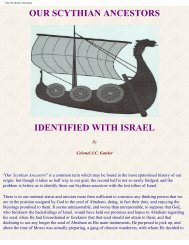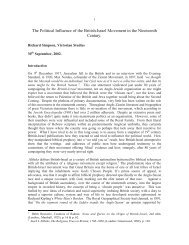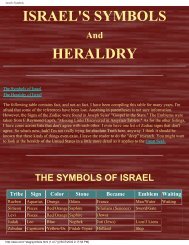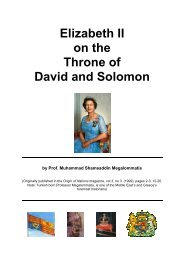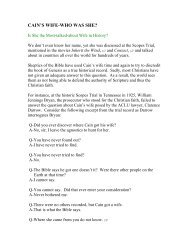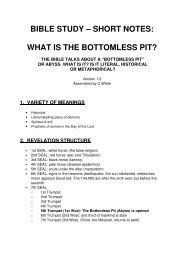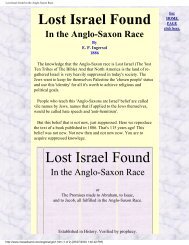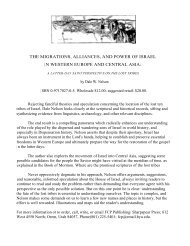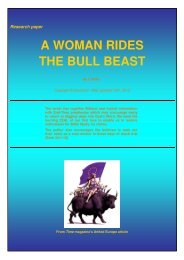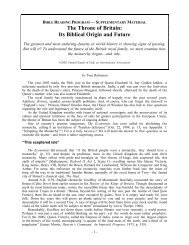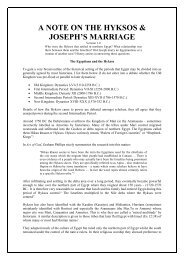CH. 6. COMMON LAW AMONG THE ANCIENT ... - Origin of Nations
CH. 6. COMMON LAW AMONG THE ANCIENT ... - Origin of Nations
CH. 6. COMMON LAW AMONG THE ANCIENT ... - Origin of Nations
Create successful ePaper yourself
Turn your PDF publications into a flip-book with our unique Google optimized e-Paper software.
Familial solidarity in educational fosterage, torts and suretyshipNorton-Taylor declares#116# that the Celts attached special importance to the education<strong>of</strong> their children. This was accomplished through 'fosterage' alias oileamhain. Literally,this means 'education.'It took children from their homes before they were seven, and then it introduced them tothe wider world. The foster-families were relatives and friends, who were reimbursed bythe child's father.The education <strong>of</strong> girls cost more than boys. A girl remained with her foster-parents onlyuntil fourteen. A boy stayed three years longer. Each foster-child learned the skills heor she would need in later life.There are numerous allusions to fostering. The most famous is Tain Bo Cuailge or 'TheCattle Raid <strong>of</strong> Cooley' -- a B.C. 200f writing <strong>of</strong> the very first importance in assessing thelife-style <strong>of</strong> the Ancient Irish.Norton-Taylor further points out#117# that as late as the sixteenth century A.D., therewere still pockets <strong>of</strong> Ireland in which traditional Irish Law was practised. Codified andwritten down almost a thousand years beforehand, these archaic laws went directly backto ancient Celtic times and were based on a tribal society in which men were responsibleto one another rather than to the impersonal institution <strong>of</strong> a State.Thus, wrongdoing was not a civil <strong>of</strong>fence but a trangression <strong>of</strong> private rights. A manwho harmed another man, paid his debt to the injured party's family -- not to society as awhole. Compare Exodus 21:19-34 & 22:1-9 etc.Under the Celtic Law <strong>of</strong> the old Irish tracts, all <strong>of</strong> a culprit's immediate relatives could beheld responsive for his misdeed. Cf. Achan in Joshua chapter 7. Thus, a man who hadallowed his cattle to trample his neighbour's fields -- might be ordered to turn over hisown fields to his neighbour for a full season. The <strong>of</strong>fender's family was responsible forseeing that the order was obeyed. By holding the family legally responsible in a dispute,Celtic Law brought tremendous pressure to bear upon wrongdoers.Besides involving whole families in legal judgments, Ancient Celtic Law had also othermeans <strong>of</strong> discouraging wrongdoers. One was the institution <strong>of</strong> suretyship. When a manhad committed an infraction, he was fined according to his status -- and he was obliged toprovide guarantees <strong>of</strong> his ability to pay.If that failed, ostracism could follow. Celtic Law was rooted in the divine order, and wasenforced by a panel <strong>of</strong> jurists -- the druids.Post-Abrahamic developments specifically in Ancient IrelandWe must now supply some solid citations from ancient documents, illustrating30



